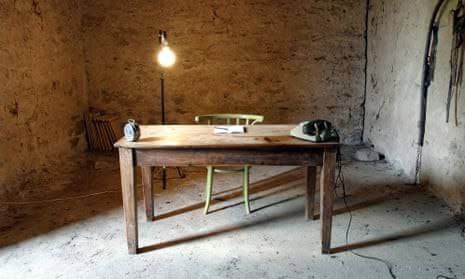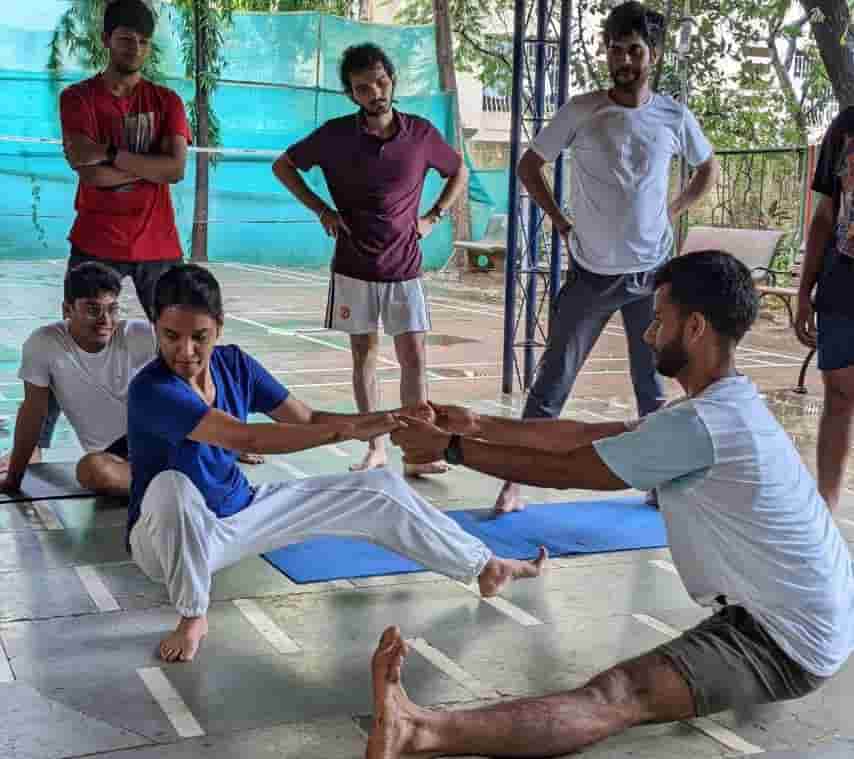Hey there! If you’re passionate about acting and want to improve your skills, you’re in the right place. Today, we’re going to talk about how you can practice acting at home.
As you know acting is a craft that requires consistent practice. And you don’t always need a stage or a theatre to hone your skills. With a little creativity and effort, you can create your own practice space and work on your acting skills right in the comfort of your own home.
These tips will help you get the most out of your practice and take your acting to the next level. So, let’s get started and discover how you can practice acting at home!
1. Have a dedicated space for acting
As an actor, you need to be in the right state of mind to perform at your best. This is where the environment you practice in becomes essential. When you’re at home, it’s important to find a space that you can dedicate completely to your acting. This can be a spare room, a corner of your bedroom, or even a closet – as long as it’s a place where you feel comfortable and relaxed.

Having a designated space to practice acting has several benefits:
- First, it helps you create a routine. When you have a specific place for acting practice, it’s easier to develop a habit of regularly practising your craft.
- Second, it helps you get into the right mindset. When you enter your acting space, you can focus completely on acting, free from all distractions.
In addition to having a dedicated space, it’s also important to create an environment that supports your acting. This can include props, lighting, and any other elements that help you get into character and stay focused.
- For example, if you’re practicing a scene that takes place in a living room, you can have a couch, armchair, and coffee table in your acting space.
- If you’re practicing a scene that takes place in a forest, you can have plants and trees around you. These elements will help you visualize the environment of the scene and get into the right state of mind.
Having a dedicated space to practice your acting will help you get into the right mindset, stay focused, and perform at your best. So, find a space in your home that you can call your own and make it as comfortable and supportive as possible.
2. Work on Mind/Body/Voice
Acting is a challenging art form that requires a unique combination of skills. It includes the ability to use your mind, body, and voice to bring a character to life.
And to achieve this, you need to work on and improve your mind, body, and voice. Whether you’re an experienced actor or just starting your career, these exercises will help you become a more confident and dynamic actor.
Physical warm-ups for Body
Physical warm-ups are an important part of any actor’s practice routine. It helps to increase blood flow in your body, so you feel awake, alert, and ready to perform.

There are many simple exercises that you can do to warm up your body:
- Stretching is a great option, as it helps to loosen up your muscles and increase your flexibility. You can start by stretching your arms, legs, and neck, and then move on to more dynamic stretches like lunges and squats.
- Jumping jacks are another excellent option for a physical warm-up. You can start with 10 jumping jacks and then gradually increase the number as you get more comfortable.
- If you prefer something a little less intense, a quick walk around in the park can also be an effective physical warm-up.
- You can also try doing some simple yoga poses or practice some simple dance steps.
Vocal exercise for voice
There are many simple vocal exercises that you can do to warm up your voice:
- Humming: It is a great option, as it helps to loosen up your vocal cords and get your voice ready for action. Start by humming a simple tune or a scale, and gradually increase the volume and complexity as you get more comfortable.
- Lip trills: Lip trills are another excellent voice warm-up exercise. They help to loosen up your lips and improve your diction. To do a lip trill, you simply need to make a “rrrrr” sound, like you’re blowing out a candle, while keeping your lips in motion. Start with a slow trill and then gradually increase the speed.
- Tongue twisters: Tongue twisters are a great way to warm up your speech muscles and improve your diction. Start with simple tongue twisters and gradually increase the difficulty.
- Breath control exercises: Breath control is crucial for actors, as it helps to support your voice and prevent vocal strain. Simple exercises like deep breathing, or holding your breath for a few seconds, can help you improve your breath control.
- Singing: Singing is another option for a voice warm-up. Singing helps to loosen up your vocal cords and improve your pitch and tone. You can start with simple songs or scales, and then move on to more complex songs as you get more comfortable.
Mental warm-ups for Mind
Mental warm-ups are an essential aspect of an actor’s practice, as they help to clear the mind and focus on the task at hand. Here are some mental warm-up exercises that you can try:
- Visualization techniques: Visualization involves creating a mental image of a scene or a character, and can help you get into the right headspace for your performance. Spend a few minutes visualizing yourself as the character you’ll be playing, and imagine yourself performing the scene with confidence and ease.
- Breathing exercises: Breathing exercises can help to calm your mind and reduce stress. Try taking slow, deep breaths, inhaling through your nose and exhaling through your mouth. Focus on your breath, and let any distractions fade away.
- Meditation: Meditation is a great way to calm your mind and improve your focus. Find a quiet place to sit, and close your eyes. Focus on your breath, and try to let go of any thoughts or distractions. Spend a few minutes meditating, and you’ll find that you’re more relaxed and focused when you start your practice.
By incorporating these mental warm-up exercises into your daily routine, you’ll be able to get into the right headspace and focus on delivering your best performance.

3. Work on your memorization skill
Memorizing lines is a crucial part of an actor’s preparation process. When you can say your lines effortlessly, you are free to focus fully on your character and emotions.
To improve your memorization skills, you can try the following techniques:
- Repetition: Repeat your lines over and over until they become second nature to you. The more you repeat your lines, the easier they will become to recall.
- Visualization: Try to create mental images that help you associate the lines with specific actions or emotions. This can make it easier to remember your lines and deliver them with more authenticity.
- Chunking: Break down the script into smaller sections and memorize one chunk at a time. This way, you can focus on one section at a time and memorize the entire script one by one.
- Rehearse with a partner: Practicing with a partner can help you to better understand the context of your lines and improve your delivery. So grab a friend or family member and act out a scene together.
- Practice in different settings: Try memorizing your lines in different locations, such as in the shower or while walking, to help them stick better.
Remember, memorization takes time and practice, but with consistent effort and the right techniques, you can improve this important aspect of your acting skills.
4. Record Yourself
Recording yourself can be a valuable tool for actors. It gives you the opportunity to see yourself in action and to judge your performance.
Recording yourself has many benefits for actors such as:
- Self-reflection: You can watch your performance and identify areas where you can improve, such as body language, tone, and facial expressions.
- Improving dialogue delivery: By watching yourself, you can work on your dialogue delivery, making sure your lines are delivered with the right emphasis and emotion.
- Getting comfortable with technology: In today’s world, acting often involves working with cameras and recording technology. Recording yourself can help you get comfortable with these tools and prepare for future acting opportunities.
- Building a portfolio: Recordings of your performances can be used as your portfolio that you can share with potential casting directors, agents, and others in the industry.
You can also use the recordings as reference materials for future performances, to see how you’ve grown and improved over time.

This Is Why Your Acting Is Not Improving
5. Watch Movies/Documentaries
As an actor, it’s important to constantly keep trying to improve your craft and stay up-to-date with the latest trends in the industry. One great way to do this is by watching movies and documentaries.
Not only can they be a source of entertainment. But they can also provide valuable insights and lessons that you can apply to your own acting. From observing different acting styles to gaining a deeper understanding of the filmmaking process, watching movies and documentaries can help you grow as an actor.
Benefits of watching films
- When you watch movies, focus on the actors and how they bring their characters to life. See how they use their body language, facial expressions, and voices to convey different emotions and tell the story. Try to identify what makes their performances so powerful and what you can learn from them.
- Watching movies can also give you an idea of different acting styles, techniques, and approaches. You can learn from different actors’ strengths and weaknesses and see how they handle different situations and emotions in their performances.
- Additionally, watching movies can help you understand the script and the story better. You can see how the actors interpret their lines and how they interact with other characters in the scene. This can give you valuable insights and inspiration for your own performances.
Overall, watching movies is a great way to learn from the best in the business and to get a better understanding of what it takes to be a successful actor.

Benefits of watching Documentaries
- Improves acting skills: Documentaries often provide real-life examples of human behaviour, emotions, and reactions, which can help you better understand how to accurately portray those elements in your own performances.
- Expanding cultural knowledge: You can learn about different cultures, customs, and lifestyles from documentaries, which can enrich your understanding of the world and enhance your ability to bring authenticity to your performances.
- Increases knowledge of subject matter: You can gain a deeper understanding of specific topics, such as historical events or scientific concepts, which can enhance your performances and bring greater depth and nuance to your acting.
Overall, watching movies and documentaries can provide actors with valuable insights. And it also provides opportunities for growth, helping them to become more skilled, well-rounded performers.
Conclusion
In conclusion, becoming an actor takes a lot of hard work, dedication, and practice. Whether you’re just starting out or looking to improve your skills, there are many things you can do to develop your talent.
There are many ways to practice your acting at home and improve your acting abilities. Remember to take it slow, be patient, and most importantly, have fun! The journey to becoming a great actor is a long one, but with the right mindset, techniques, and tools, you can achieve your goals.
So, keep working on your craft; who knows, you might become the next big star!



